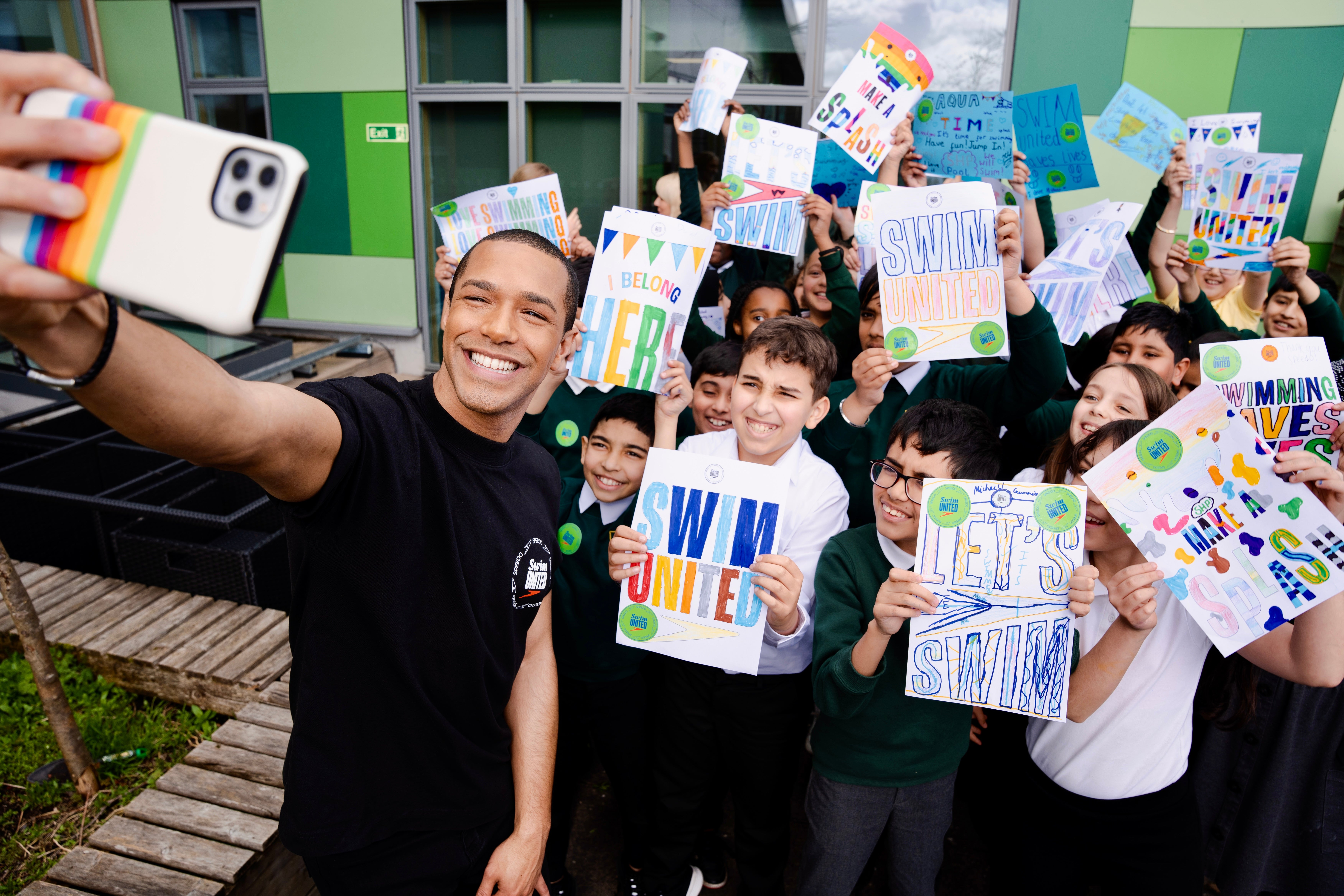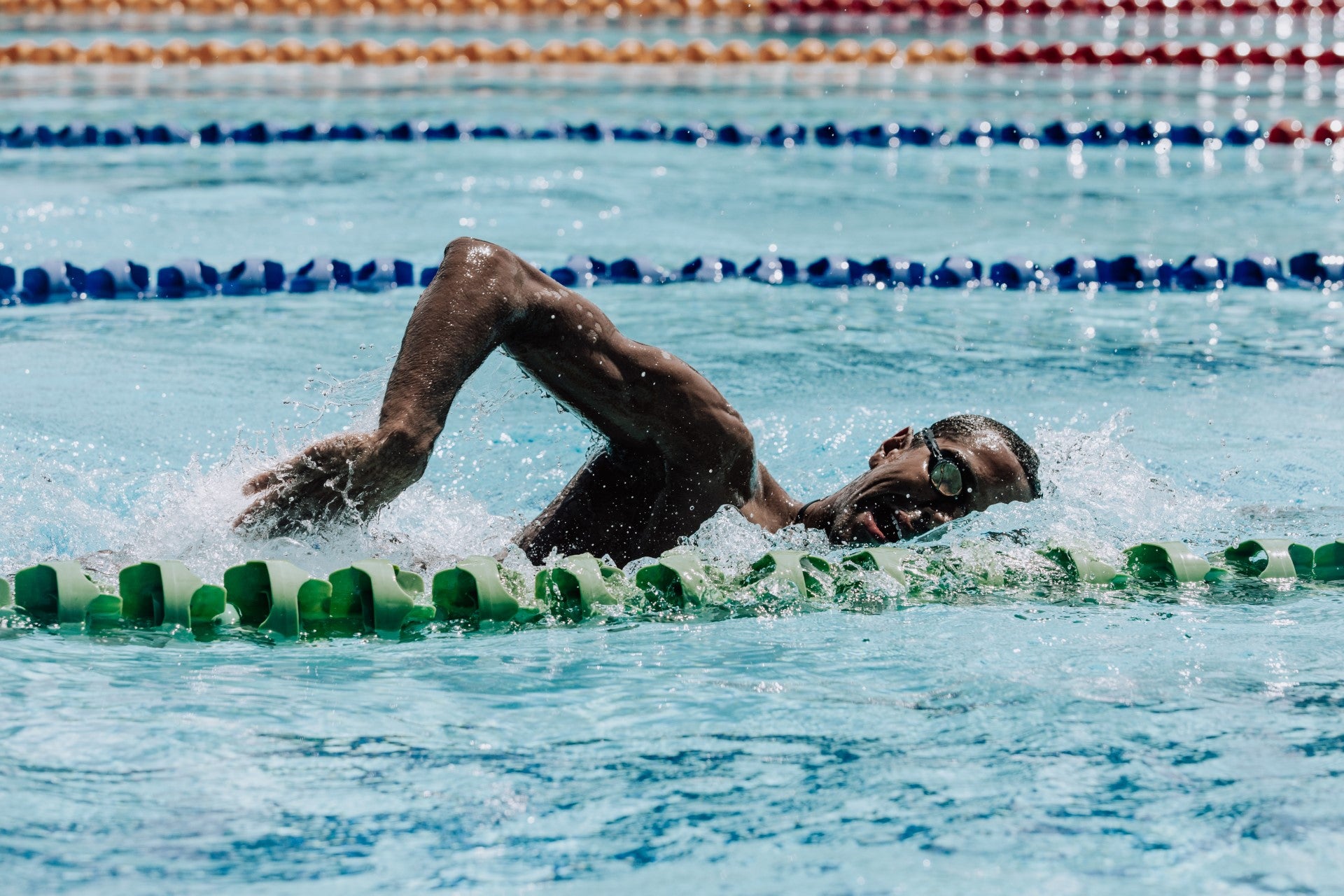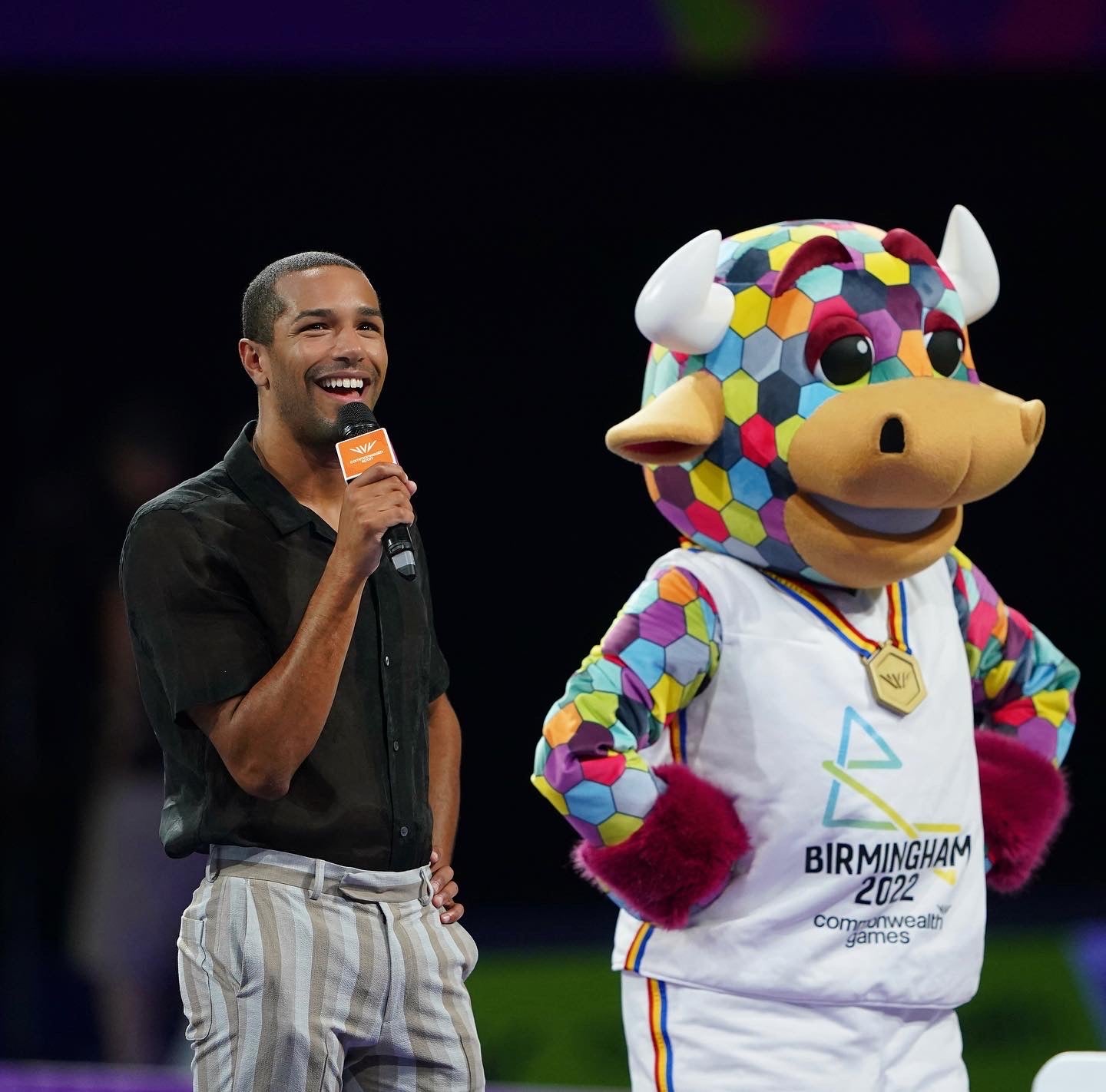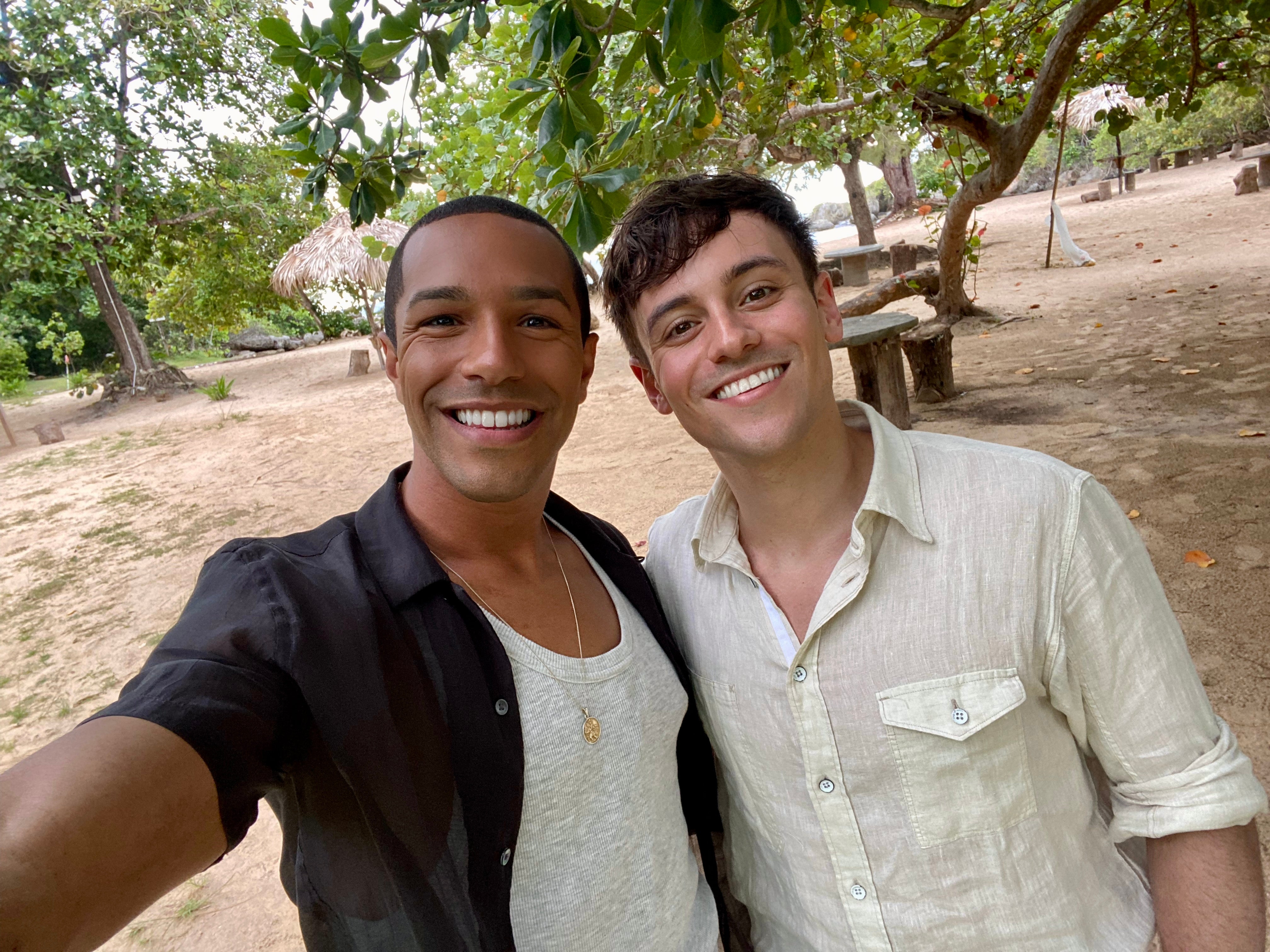‘If they knew about my sexuality, I don’t think they’d have encouraged me to swim for their country’
Ex-professonial swimmer Michael Gunning speaks to Emma Henderson about being gay while swimming for Jamaica as an anti-LGBT country, how Tom Daley helped him come out and how his work is helping support equal rights around the world


Your support helps us to tell the story
From reproductive rights to climate change to Big Tech, The Independent is on the ground when the story is developing. Whether it's investigating the financials of Elon Musk's pro-Trump PAC or producing our latest documentary, 'The A Word', which shines a light on the American women fighting for reproductive rights, we know how important it is to parse out the facts from the messaging.
At such a critical moment in US history, we need reporters on the ground. Your donation allows us to keep sending journalists to speak to both sides of the story.
The Independent is trusted by Americans across the entire political spectrum. And unlike many other quality news outlets, we choose not to lock Americans out of our reporting and analysis with paywalls. We believe quality journalism should be available to everyone, paid for by those who can afford it.
Your support makes all the difference.As a child, Michael Gunning says he had a "big fear of swimming". Not what you’d expect from someone who has competed in the World Championships twice. He swam for Team GB and Jamaica at the highest level, but retired last May from professional swimming aged just 28.
Many milestone events in his relatively short life have marked his career. Undoubtedly, one of the most pivotal moments came in 2017. Gunning went to a concert which changed the lives of everyone in the audience forever, and reverberated far beyond the doors of the arena. It was the Manchester bombing terrorist attack at Ariana Grande’s concert which devastatingly killed 22 people. Gunning managed to escape, but the effects of survivor’s guilt have long lingered. "In that moment, I didn’t really help many people – I just ran," he says.
That feeling has since made him want to "make a difference" and "an impact" for other in sport, not only as a Black swimmer, but also as an athlete who is proudly part of the LGBT+ community.
It also made him finally make the move to honour his Jamaican heritage, and represent Jamaica in swimming – something his family had long urged him to do, as had Jamaica’s Amateur Swimming Association.

Gunning saw it as a powerful opportunity to inspire many Jamicans to swim, which is a sport vastly dwarfed by the popularity of athletics in Jamaica. Everyone was hugely behind Usain Bolt, but Gunning explains many Jamicans are "scared of swimming and petrified of water". He wanted to be that person to inspire Jamaicans to get into swimming.
While swimming for the country, he competed in both the 2017 and 2019 World Aquatics Championships swimming butterfly – arguably the hardest stroke of them all, inspired by his idol Michael Phelps. But between these competitions was another pivotal moment in his life, and what he calls the "missing piece of the puzzle" – his sexuality and coming out.
Helping him to do so was friend and GB diver Tom Daley. Gunning didn’t want to go down the route of "sitting everyone down individually” to tell them, so instead, he came out on a TV show in 2018, The Bi Life. Although Gunning wishes he’d come out earlier -- from a young age he put all his energy into swimming, which he says suppressed his sexuality. "For a long time [swimming] was my identity. I loved being known as ‘the swimmer’. I didn’t want people to label me as ‘the black kid’ or as ‘the gay kid or camp kid’. I just wanted to be known as Michael the swimmer. So I embraced that title."
Coming out meant he could be a role model for other swimmers, as growing up there wasn’t anyone visible "with my sexuality and race", and for Gunning "being represented is just so important."
Looking back on those two major life events of swimming for Jamaica and coming out, Gunning thinks: "If they knew about my sexuality, I don’t think they’d have encouraged me to swim for Jamaica." Gunning was the only openly gay athlete on the Jamaican team. Even now, there’s not been a second athlete to come out on the team. During the World Championships and after coming out, he also initially felt a little hostility from the other Jamaican athletes. He says they were a "little bit hesitant towards me", but it was short lived as "when they got to know me as a person, they just totally accepted me," he adds.

Gunning continued to compete for Jamaica until his retirement last year, but he hadn’t been back to the country since before he came out. He finally returned in 2022 with the support of Daley as the pair worked on Daley’s documentary, "Tom Daley: Illegal To Be Me". The documentary spoke to LGBT+ athletes around the world to find out what it’s like being part of the LGBT+ community in their country. The idea was born out of the staggering fact it’s illegal to be gay in 25 of the 56 nations that make up the Commonwealth. Daley had previously said he wanted to ban countries with anti-LGBT+ laws from hosting sporting events, but he’s now campaigning for LGBT+ inclusiveness by asking host countries to have a pro-LGBT+ ethos in a bid to change their discriminatory attitudes and laws.
Returning to Jamaica to film his segment for the documentary after coming out was nothing short of brave for Gunning. The country punishes same sex relationships by imprisonment of up to 10 years, and polls generally show the nation to be very conservative and unaccepting of homosexuality, while same sex marriages are not legal. "I don’t think I would have gone back without Tom," he says. But it was the fact he was visiting with Daley for this documentary that gave him the "strength" to go back.
"I was petrified to return’’ to Jamaica. He says the anti-LGBT+ language people use in the streets is "because of the laws in place and people think that’s what they must abide by".
It wasn’t just the laws or the language that made him feel like this, though. "As soon as I came out, I got so many hate messages and death threats online." But among those, Gunning says he was "overwhelmed” with the messages of support, too.
Daley and Gunning met on a secluded beach to film the documentary, for fears of people recognising them. "I did worry that people would just try and target me… especially as Tom is such a big figure," he says.
In a bid to avoid being recognised in Jamaica, the pair even "had to dress in disguise" as they entered the country. "We had bodyguards with us and we had to report back to our hotel by a certain time," he explains.
Since coming out, Gunning has been using his sporting platform to challenge the lack of visibility of LGBT+ people in elite sport. He says he’s "one of the only people in Jamaica that is really advocating for equal rights for laws to change".
Yet he knows there are a lot of elite athletes who are competing at the Olympics and major championships, "but I don’t want to reveal their sexuality because they don’t want to be seen differently, or to lose their support from the nation". It’s a depressingly sad thought that in 2023 anyone is having to hide their true identity for fear of discrimination, but it also speaks to how much further there is to go in terms of acceptance.
In light of this, Gunning thinks that countries with anti-LGBT+ rules "shouldn’t be able to compete" in top level sporting events. "I know it’s hard because obviously, not all athletes would agree with that," but for him, sporting events "should be a safe space."

One of the ways top level sports competition are making events feel safer forthe LGBT+ community is by having Pride Houses. These are temporary safe space buildings within the athletes villages designed for people of the LGBT+ community and allies, whether they’re athletes, volunteers or visitors to use during the events. The idea first started at the Vancouver Winter Olympics in 2010, and at last year’s Commonwealth Games, Gunning was an ambassador and hosted panels at Pride House covering LGBT+ topics. Although it is a great initiative, Gunning still thinks "there’s a lot more work to be done and hopefully conversations will keep happening".
He’s also working with the Kaleidoscope Trust, "especially within countries of the Commonwealth, but also around the world", where he’s "speaking to governments, being present and having a seat at the table". He wants to ensure "we’re at the right places to raise these issues".
As well as using his sporting platform to try to change anti-LGBT+ laws around the world, he champions the importance of Pride too, which he describes as "bringing everyone together to celebrate, be present and share stories."
He also highlights how it’s not just for the LGBT+ community, as some people might mistakenly think. Instead he says "it’s for everyone" and is also a time that "allows me to reflect on what more we can do around the world".
Gunning’s positivity is infectious. His career, like all athletes, has had many challenges with plenty of highs and some lows, yet he still has a sense of failure. That seems hard to fathom considering the elite competitive levels he’s reached, as well as his continually growing role model status for swimming and the LGBT+ community.
"As an athlete, you can feel like you’ve failed because you haven’t reached the top or you haven’t got that medal…A lot of athletes struggle post-retirement and it’s definitely something I’ve struggled with."
But true to his positive form, with each year going by he says he feels more his authentic self. And it shows.




Join our commenting forum
Join thought-provoking conversations, follow other Independent readers and see their replies
0Comments